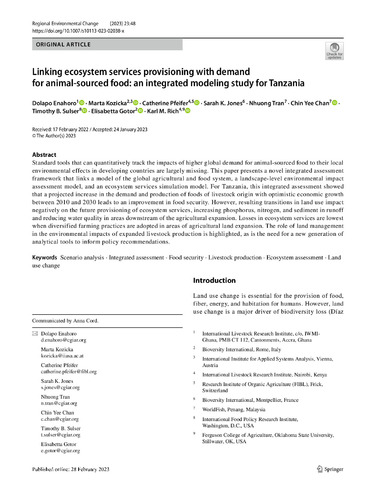Linking ecosystem services provisioning with demand for animal-sourced food: an integrated modeling study for Tanzania
Standard tools that can quantitatively track the impacts of higher global demand for animal-sourced food to their local environmental effects in developing countries are largely missing. This paper presents a novel integrated assessment framework that links a model of the global agricultural and food system, a landscape-level environmental impact assessment model, and an ecosystem services simulation model. For Tanzania, this integrated assessment showed that a projected increase in the demand and production of foods of livestock origin with optimistic economic growth between 2010 and 2030 leads to an improvement in food security. However, resulting transitions in land use impact negatively on the future provisioning of ecosystem services, increasing phosphorus, nitrogen, and sediment in runoff and reducing water quality in areas downstream of the agricultural expansion. Losses in ecosystem services are lowest when diversified farming practices are adopted in areas of agricultural land expansion. The role of land management in the environmental impacts of expanded livestock production is highlighted, as is the need for a new generation of analytical tools to inform policy recommendations.

